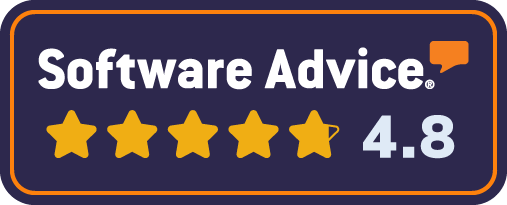Last week I shared drinks with a small group of media biz types in Manhattan, and inevitably the discussion turned to ChatGPT. People shared amusing stories of how they’d used the hottest AI tool to create content that formerly involved time and semi-drudgery. One used it to write a short conference speech, and another to generate an employee’s written performance review. Everybody seemed enamored with ChatGPT as a content creation tool.
As a frequent contrarian, after a few minutes I could no longer hold my tongue, and blurted out that I was a ChatGPT skeptic. When asked to share the reason for my skepticism, I mumbled something about it being ‘overhyped’ and then let the conversation proceed. Given the web-wide blizzard of adulation and breathless excitement around ChatGPT these last couple of months, I didn’t want to appear too cranky at that moment; naturally, I wanted to be invited for drinks again in the future!
Yet now, from the relative safety of my screen and keyboard, I’d like to explain why I believe it’s overhyped: ChatGPT solves the wrong problem.
For content creators, ChatGPT (and its generative AI siblings such as DALL-E, etc.) cuts the time to create content by orders of magnitude. If you’re one of the millions (myself included) who’s played with ChatGPT and been impressed, you’ve experienced how quickly, and thus inexpensively, it churns out cogent text.
But production cost is not the biggest problem facing content creators (investors in media firms, please take note). The biggest problem facing media and marketers is that by focusing on creating content for audiences, they’re not focused on creating value for their audiences. So a fixation on cheaper content is a distraction with high opportunity costs.
Let me unpack the three biggest imperatives for content creators, none of which ChatGPT solves:
You Need To Deliver Relevance
Being a content creator today means more than churning out text, images and video–it means helping a person boil down an ocean of irrelevant (and often low-value) content into the exact thing which meets a particular individual’s need in a particular moment.
During my Internet startup days of the mid-1990s, I exulted in how the web made it easier than ever before to find what you needed. Yet today, we face a glut of same-seeming sponsored product results on Amazon, low-value clickbait search results on Google, or 20-minute YouTube videos that may or may not contain the 20-second crucial explanation we need. In the web’s first 30 years we moved from scarcity to super-abundance of content. But in terms of time spent searching for relevant content, the past decade’s glut of content seems to have moved us backwards.
You Need to Enhance Understanding
The most impactful pieces of content update a person’s ‘mental model’ of how the world works. Great content changes, even subtly, a person’s appreciation of something, their respect for nuances, and their savvy in their professional and work lives.
ChatGPT will struggle to refine people’s ‘mental models’ beyond a certain point because it has no mental model of its own–it’s merely a very sophisticated parrot. Because it has no idea how the world works, it can only tell you so much about how the world works. There are times when basic/banal content fits the bill–if you know absolutely nothing about a topic, ChatGPT can perhaps take you ‘from zero to one’. But if you wish to proceed further from one to two, five, or nine, you will almost certainly have to spend time on the primary sources that ChatGPT has pseudo-plagiarised in order to sound pseudo-intelligent.
You Need to Create Value for Your Audience
Publishing a piece of content should help both the reader/viewer and the person seeking to engage that reader/viewer (e.g. a publisher or advertiser). If the content contains helpful advice, a new idea, or a solution to someone’s problem, that’s a good indication that it contains value. But content almost never creates value on its own. But in order for content to create value, it almost always needs to be part of a larger system ‘connecting the dots’, such as bringing together buyers and sellers.
The content you create provides no sustainable competitive advantage. So said a provocative slide in a November 2022 conference keynote by Robert Rose of The Content Advisory. (Given that the audience was a ballroom full of financial services content marketers, you could have heard a pin drop after Robert uttered those words.)
Robert’s powerful point was that anyone who creates content as part of their job must remember that good content itself isn’t the thing–good audience relationships are the thing. Good content is a prerequisite for good audience relationships, but it’s only a piece of the larger puzzle. The value publishers provide advertisers isn’t in how much readers enjoy an article or in the production of a really beautiful white paper. The value publishers provide advertisers–and audiences–comes when publishers put in the effort to know their audiences deeply. And then, for the win, when publishers package those insights in ways that help organizations bring better products & services to those who need them.
How Will We Use ChatGPT?
When we all look back on the dawn of generative AI later this decade, we’ll perhaps chuckle at how we made ChatGPT rewrite that boring corporate memo in the style of Shakespeare. But with hindsight, will ChatGPT have played an important role in building deeper audience relationships, which is the most important strategic objective for media firms and marketers?
Sure, ChatGPT creates a lot of content very quickly. But for content producers, sourcing radically cheaper mid-quality content is as strategic as finding a supplier of radically cheaper ballpoint pens. If buying 1,000 pens suddenly cost you only a penny, would that create a sustainable competitive advantage for you?
Thinking back on last week’s cocktail discussion about people’s AI experiments, I have to wonder: Could ChatGPT’s short conference speech contain that savvy, nuanced joke that would make the room laugh knowingly? Would ChatGPT’s performance review contain the right notes of inspiration to motivate that employee to excel in future? Obviously not, without human intervention.
I do not believe that radically cheaper content will solve publishers or marketers biggest challenge of building valuable audience relationships. But I do have hope: If ChatGPT and its ilk wind up being used wisely–to augment human input, and not to avoid it–then I’ll cheerfully raise a glass and buy the next round.






